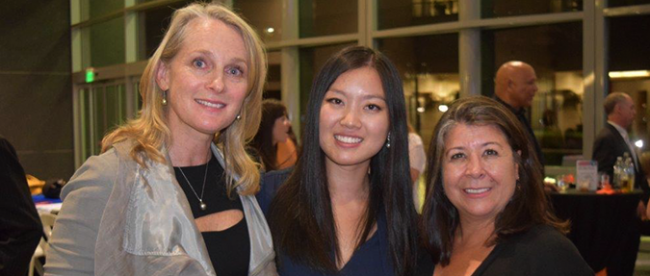The opportunity for criminal justice reform has never been greater or more needed.
- Since 1970, the U.S. prison population has risen by more than 400 percent
- One in 35 U.S. adults are in prison, jail, on parole or probation
- The U.S. leads the world in the largest prison population
The writing is on the wall. America has a criminal justice problem and now is the time to address it.
On October 17, The San Diego Foundation had the privilege of partnering with Second Chanceto host “Orange is the New Black: The Real Story with Piper Kerman.” The event featured renowned author, nonprofit leader and social justice advocate Piper Kerman to bring attention to the importance of anti-recidivism in our region and across the nation.
Sustainable Anti-Recidivism Solutions
As a former convicted felon, Kerman experienced firsthand the deficiencies of the U.S. criminal justice system.
“Prisons have a really limited capacity to rehabilitate,” stated Kerman. “I knew women who were trying to raise their children during brief reunions in the visitors’ room while fending off sexual harassment and struggling with addiction and trying to get a high school education so that when they got out they stood some chance of surviving despite their felony conviction.”
By looking at juvenile and criminal justice, and recidivism reduction in a holistic way, we can get better at integrating services and support that are critical to building a path back to well being for the previously detained and incarcerated.”
The programs that factor into a complete, sustainable anti-recidivism solution are numerous.
The San Diego Foundation’s Our Greater San Diego Vision report found that San Diegans value education, jobs, and affordable housing… for everyone. The interconnection between these and an equitable criminal justice reform strategy is clear.
Together, we must take steps to reduce the number of people living in the system – foster care, juvenile, and criminal justice; improve conditions for those living in the system, and provide meaningful opportunities for those to re-enter public life thereby reducing the probability of returning to life in the system.
Russell Simmons once said, “Judgement of the people in the situation is not helpful. How you can help them is the question.”
By looking at juvenile and criminal justice, and recidivism reduction in a holistic way, we can get better at integrating services and support that are critical to building a path back to well being for the previously detained and incarcerated.
Instead of putting people behind bars, let’s ask what we can do to help them succeed. Then let’s do it!




